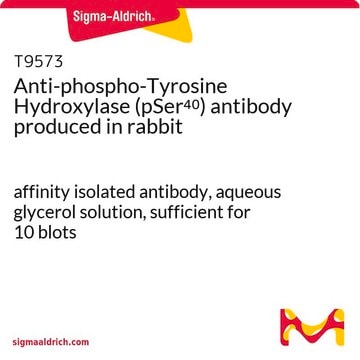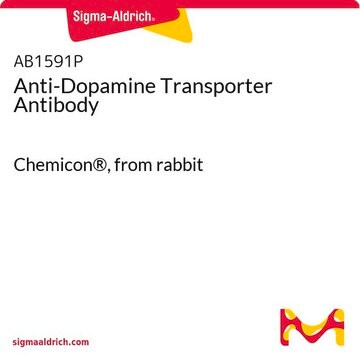AB2231
Anti-Dopamine Transporter; 100 µg Antibody
from rabbit
Synonym(s):
DA transporter, dopamine transporter, solute carrier family 6 (neurotransmitter transporter, dopamine),member 3, variable number tandem repeat (VNTR)
About This Item
Recommended Products
biological source
rabbit
Quality Level
antibody form
affinity isolated antibody
antibody product type
primary antibodies
clone
polyclonal
species reactivity
mouse, rat
technique(s)
western blot: suitable
NCBI accession no.
UniProt accession no.
shipped in
wet ice
target post-translational modification
unmodified
Gene Information
mouse ... Slc6A3(13162)
rat ... Slc6A3(24898)
General description
Specificity
Application
Quality
Target description
Reduced form at approx 50 kDa and Non-reduced form at approx. 80 kDa
Physical form
Other Notes
Not finding the right product?
Try our Product Selector Tool.
recommended
Storage Class Code
12 - Non Combustible Liquids
WGK
WGK 1
Flash Point(F)
Not applicable
Flash Point(C)
Not applicable
Certificates of Analysis (COA)
Search for Certificates of Analysis (COA) by entering the products Lot/Batch Number. Lot and Batch Numbers can be found on a product’s label following the words ‘Lot’ or ‘Batch’.
Already Own This Product?
Find documentation for the products that you have recently purchased in the Document Library.
Our team of scientists has experience in all areas of research including Life Science, Material Science, Chemical Synthesis, Chromatography, Analytical and many others.
Contact Technical Service







